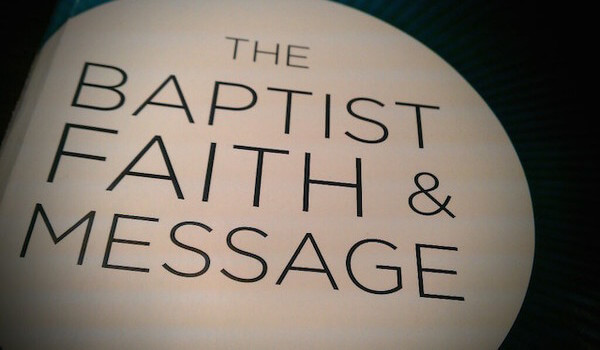
Romans 4:1-3 What then shall we say that Abraham, our forefather according to the flesh, has found? 2 For if Abraham was justified by works, he has something to boast about, but not before God. 3 For what does the Scripture say? “Abraham believed God, and it was credited to him as righteousness.”
Note to Readers: You are invited to listen to a podcast on Reformation Day at the Growing Christian Resources Podcast site: http://gcrpodcast.wordpress.com/2014/10/31/podcast-reformation-day-a-cause-for-celebration/. For those wanting to know more about the Reformation, read a review of an excellent book by Erwin Lutzer on the subject at http://www.growingchristianresources.com/2016/09/book-review-of-erwin-r-lutzers-book.html
Introduction:
October 31 is a landmark day for Christians throughout the world. This particular year marks the 499th anniversary of Martin Luther's posting of the 95 theses on the church door in Wittenberg, Germany, wherein he was airing his grievances against the Roman Catholic Church's system of indulgences. With the then newly invented printing press, Luther's document spread like wildfire throughout Germany, sparking a sociological, theological and spiritual revival. All Bible believing groups, including Southern Baptists, are deeply indebted to what God did through the Protestant Reformation that began on October 31st, 1517.
In a 2007 sermon, Southwestern Baptist Theological Seminary President Dr. Paige Patterson noted the following about Reformation Day for Southern Baptists link: http://www.swbts.edu/campus-news/news-releases/patterson-celebrates-baptist-heritage-during-reformation-day-chapel/
Today's post is aimed at issuing forth two direct challenges to Southern Baptists and all other Bible believing groups about Reformation Day, October 31st: A rejoicing challenge and a take back challenge.
The Rejoicing Challenge: 3 reasons to rejoice on Reformation Day, October 31st
So why rejoice over Reformation day, October 31st?
1. First of all, the root or formal cause of Luther's call for Reform had to do with ultimate authority in the Christian life and church. The big question Luther needed to answer was: is the Pope and his statements concerning who went to heaven and who did not the ultimate authority for the church, or is it sacred scripture that God alone revealed to communicate matters pertaining to this life and the one to come? As Martin Luther wrestled over such questions, his conclusion was - Scripture alone!
2. The second reason to rejoice over October 31st and Reformation Day is due to the fact that the Gospel of Justification by Faith Alone was recovered. In contrast to the man-made traditions of the Roman Catholic Church of the Middle Ages, Luther and those after him re-asserted the Biblical truth that faith alone is both the necessary and sufficient means of receiving the gift of salvation. Thus Justification by Faith Alone became the central doctrine or material cause driving the vehicle of the Protestant Reformation. The doctrine of scripture alone (sola scriptura) was Luther's fuel in the engine that drove His call for reform - Justification by faith alone (sola fide). Luther himself noted that Justification by Faith is the one article upon which the church rises or falls.
3. Then the third reason to celebrate Reformation Day, October 31st, is because the Biblical concept of the church was recovered. As Martin Luther denounced the Catholic Church's system of indulgences, a second question emerged: how is a man or woman made right with God? A church that does not derive its authority from the scriptures nor teaches the Biblical concept of the Gospel - justification by faith alone, cannot be deemed a true church.
Roman Catholicism of 16th century Europe, as well as today, communicates faith to be necessary for salvation - however it teaches that faith by itself is not sufficient. According to Rome, one must participate in the Roman Catholic church system of baptism, confession, penance and Mass to be deemed right by God and to stay right.
The Gospel in the Reformation's recovery of the church shined forth not as a candle but as a brilliant sun, outshining all other would be contenders. If God had not raised up men like Martin Luther to spark the Reformation movement, then perhaps you nor I would be here celebrating the revival of Biblical authority, justification by faith in the Gospel and the necessary truth of the local church committed to both those truths. The church today still needs to heed the cry of reform uttered back in 1517. Moreover, the Word of God is the standard by which all churches need to yield, thus requiring each church to check its practice and theology against that standard.
So we need to answer the challenge to celebrate Reformation day due to what God did in calling us back to the Bible, the Gospel and the Church. But now let me issue a second challenge, a take back challenge if you will...
The Take Back Challenge: Let's take back October 31st and celebrate God's Word, the Gospel and Jesus' mission for His church
It is time to take back October 31, and use this day to proclaim the truth of scripture and the reformation, sparked on October 31, 1517. Truly the message of the Reformation is a message about "after darkness, light" (post tenebras lux). Gospel Light, not darkness, should characterize our lives as Christians. October 31st has been for years by Wiccans and people of the Pagan/Witchcraft worldview to observe one of the so-called "spirit nights" on their yearly calendar. Christians need to take a God-centered event like the Reformation and remind themselves of how God led His church back to the Bible and salvation through faith alone in Christ alone.
Closing thoughts:The Reformation was about calling forth people from spiritual darkness into the light of Jesus Christ. Someone once said: "It is more effective to light a candle than merely curse the darkness". Let's light the Gospel light and shine the glory of the Gospel. As Jesus said in Matthew 5:16 - “Let your light shine before men in such a way that they may see your good works, and glorify your Father who is in heaven."










